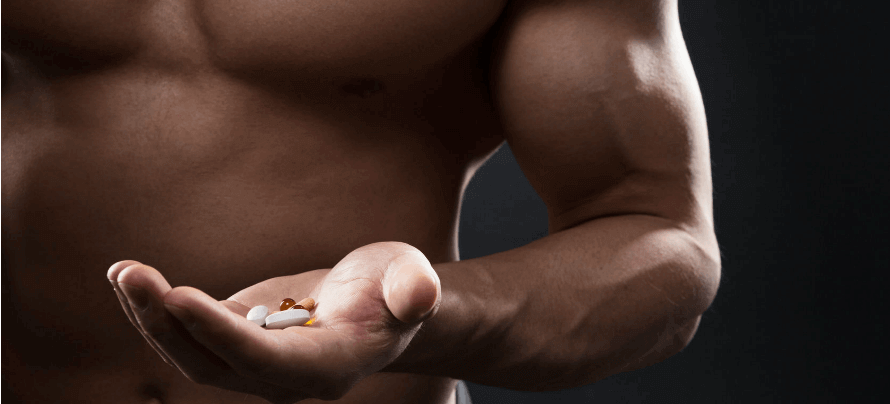Key Takeaways
- Astragalus membranaceus is a herb used in Traditional Chinese Medicine recommended as a general cure-all. While it’s not a panacea it seems to have promise for immunity, general health, and potentially kidney health.
- While more researched than many herbs on the market, most research on astragalus is fairly low quality.
- Ultimately, astragalus is a very interesting herb with a large amount of potential health benefits but we need more research before firm conclusions can be made.
I have a soft spot for traditional medicine.
I know Western medicine is better, I know Western science is better quality, and I like to believe that this goes beyond just my bias as being trained in the West. I’ve had studies translated for me and, yuck, sometimes it gets real sloppy.
Plus there are numerous times where regional politics gets involved, like policosanol being “totally better than statins” but only when from Cuban cane sugar with all studies being conducted in Cuba; or the prostate benefits of Maca all being conducted in Peru, pretty much the only exporter of maca worldwide.
And I can’t say China has a good track record when it comes to publishing faulty data (Retraction Watch could make a series from this). Italy is also getting up there in the sketchy department—lot’s of stuff going on behind the curtains of scientific politics.
But that’s all contemporary, what about history?
A 2,000 year history of medicine, with countless people scouring a large landmass for cool stuff to put in their mouths? The whole notion of Qi is enthralling, and the meridians were perhaps the first time in history somebody realized there was something beyond blood that carries signals (Western medicine calls them “neurons”).
They had to get some good hits, right?
So whenever I see a Traditional Chinese Medicine herb being studied academically I take interest, open my mind, and unfortunately more often than not open up a bottle of disappointment whiskey afterwards. Someday, someday we’ll get another berberine.
Today is not that day, but astragalus is still on standby for it’s time in the limelight. Can’t recommend you take it, yet, but I can totally recommend learning about it; very interesting!
- What Is Astragalus?
- Why Do People Supplement with Astragalus?
- What Does Astragalus Work For?
- What Might Astragalus Work For?
- What Does Astragalus Not Work For?
- What’s the Clinically Effective Dosage of Astragalus?
- Does Astragalus Have Any Side-Effects?
- The Bottom Line on Astragalus
Table of Contents
+What Is Astragalus?
Astragalus membranaceus (henceforth just “astragalus”) is a traditional Chinese medicine.
It’s a pretty important one as well, being one of the Fifty Fundamental Herbs (assumed to be the best of the best of all herbs in East Asian herbology) and claimed to have many similar properties as the Mushroom of Immortality, namely increased longevity, better heart health, and an improved immune system.
As a very general rule of thumb astragalus contains:
- The astragalosides, which are unique fat-soluble components linked to many of the claimed benefits.
- Polysaccharides that may influence the immune system in a beneficial manner.
- Various other plant based compounds, “flavonoids” if you may, that could hold benefit.
It’s basically a cocktail of numerous beneficial compounds, with Examine having a more exhaustive list under section 1.2. Unlike spirulina, which is a herb with 1 to 2 things working, astragalus may have dozens.
Astragalus is a herb that, at the end of the day, has numerous potentially powerful molecules in it and could become noteworthy if any of these individual molecules are proven effective.
Why Do People Supplement with Astragalus?

The most popular four claims associated with astragalus supplementation are:
- Increased longevity (both the length of life and the quality of life being mentioned)
- Improved immune function (prevent sickness)
- Improved cardiovascular health (unspecified in many places what this means)
- Improved kidney function (helps “protect” the kidneys)
Although it is recommended for many things ranging from neuroprotective effects to simple skin care. In Traditional Chinese Medicine it’s almost recommended like how a 1920’s nanny would recommend fish oil—just trying to force it in your face every day “because it tonifies your Qi.”
What Does Astragalus Work For?
Astragalus has quite a bit of divide between Western and Eastern research.
Not all studies are available for me to look into, so keep that grain of salt with you throughout this article. It’s impossible for me to look into all the studies since I don’t have access to Chinese databases and, even if I did, I am a monolinguistic plebeian.
Astragalus and Immunity
Astragalus, much like reishi, is a source of what are known as “bioactive polysaccharides.”
These polysaccharides tend to improve active immunity, the ability of the body to respond to infections, and at times have anti-allergic properties as well.
What makes them unique, however, is that they tend to be found in plants that overall have anti-inflammatory properties (due to other stuff in the plants). This balance makes them ideal for people who are not in critical condition but just want a little boost.
Supplementation of astragalus, specifically an 18:1 extract (this means 80 mg of the plant that provides 40 mg of polysaccharides) has been shown to reduce symptoms of allergic rhinitis by more than half after three weeks. That’s not as strong as spirulina or tinospora cordifolia but, hey, it gets to play with the big boys.
When it comes to the cells involved in the immune system, astragalus is thought to improve active immunity by improving T-cells more than echinacea (the most popular herbal immune booster) and placebo. Just be aware that echinacea not an overly high bar to surpass.
Astragalus lacks large-scale research on infection rates (i.e. how often people using this herb get sick) but has similar theme to other proven immune boosters. It’s reasonable to assume it works, although potency is still uncertain.
What Might Astragalus Work For?
This section is for topics that have, like, one or two studies I can read on them?
I want to mention them but it would feel disingenuous to put them in the former category since I cannot access many of the studies beyond reading about them vicariously through other reviews.
Astragalus and Cardiovascular Health
Astragalus does seem to have studies showing benefits to cardiovascular health. They’re a bit disjointed and of questionable quality at times but, generally speaking, oral astragalus is better than placebo.
I say this with the aforementioned grain of salt, however.
There is a metric ton of studies using IV administration of the astragalosides that are published in Chinese. A 2011 review found 62 trials on the topic overall and that number has since grown.
Based on all that, what do we know about this herb?
- It seems to reduce blood pressure.
- It seems to have direct cardioprotective effects (as in, protecting heart tissue itself).
- It seems to protect against comorbidities like stroke.
Yet, the quality of evidence overall still needs to be improved to Western standards.
There really isn’t much more to say on this topic aside from how the in vitro data all looks good. If the astragalosides (a major component of the plant) can get to the tissues they can protect the tissues.
Injections differ from oral supplementation though. While injections can get everything in your blood right away, putting it in your mouth means your intestines and liver get first dibs at it. If they don’t like it then it won’t be absorbed and will end up in the toilet.
Perhaps that’s why you use 15 grams of the root a day in traditional medicine, to compensate for bad absorption?
Pending more data on oral supplementation of astragalus it may end up being a highly protective cardiovascular supplement. We need to twiddle our thumbs until Western establishments replicate the data though.
Astragalus and Kidney Health
Astragalus is one of a few herbs claimed to help support the kidneys. It’s pretty cool.
Now, I cannot say that the evidence is great on this topic. Tons of studies I cannot read (Chinese) showing injections help with surgery-induced kidney damage, kidney damage from lupus, diabetic kidney damage, primary nephritis, and IgA-induced kidney damage but, you guessed it, this monolinguistic plebeian can’t evaluate.
There’s at least one meta-analysis stating that it has profound protective effects so let’s just trust Li et al. with this one.
However, there is even a case study (so, just one person) where the standard 15 grams of root given to a 77 year old women… get this… suppressed nephrosis (essentially drastic kidney damage) later ending up in remission.
I know many of you will jump on me for using a case study but, damn, remission from nephrosis is kind of a big deal. At the very least it’s interesting to talk about.
Human studies on the topic have found a diuretic effect (increases urination) by making the kidneys respond better to a peptide in our bodies called atrial natriuretic peptide (ANP). This could potentially explain a blood pressure reducing effect since ANP’s actions are important.
Ultimately, we need to bridge the gap with more Western trials using oral supplementation to see if this data is relevant. If it is relevant then, oh boy, astragalus would be highly potent and generally protect against all kidney disorders.
Astragalus and Stroke Recovery Rate

This is an interesting topic because not many supplements even dabble in this field and, if you or a loved one have had a stroke and suffer functional impairments due to it, you might be grasping at straws for options.
There is currently one study where supplementation of astragalus, specifically 3.75 grams of the raw root thrice a day (boiled down to 2.8 grams), reduced fatigue and improved quality of life in stroke survivors after a month of supplementation. A similar dose has also been found to have some degree of minor healing properties after a stroke assessed by clinicians.
There is apparently more research on this topic but, alas, they’re chinese studies not indexed on pubmed.
While the evidence is not robust by any means there does appear to be human research suggesting about 4 grams of the raw root, three times a day, can improve symptoms that persist after suffering a stroke.
What Does Astragalus Not Work For?
Some things in our world just are. The sun rises and falls, death and taxes come for us all, and Traditional Chinese Medicine is overhyped as balls.
With the benefits out of the way let’s focus on the stuff astragalus has failed to do, starting with the one topic I am totally not biased in (lies, I have many bones to pick).
Astragalus and Longevity
“Improving longevity” can either be interpreted as adding years to life, or living longer, or life to years, reducing the side-effects of aging despite overall age being constant.
I want to clarify that it’s hard to prove that something doesn’t work for longevity. It’s also hard to prove it works for longevity, since improving longevity is just a hard thing to sufficiently demonstrate.
Astragalus is very much in a state where we really don’t know but 5% progress towards being proven beneficial is better than 5% progress towards being proven to be ineffective; damn shame the percentage ain’t higher though.
With that out of the way, I hate TA-65.
Some of you may remember hearing this acronym a few years back. It is a “patented” astragalus extract that is, specifically according to patents, astragaloside IV. It was shown in rats to preserve telomere length (telomeres thought to indicate aging) then later to lengthen them, suggesting an anti-aging effect.
It seems the products these days may use cycloastragenol, which has shown to have similar effects on telomeres. Human studies on the topic fail to see 5 to 10 mg TA-65 doing anything for telomeres while 32 mg trended, but still failed, to reach significance in improving telomere length.
Now, why do I hate TA-65? Well, let me just do a list:
- Unnecessary dosage confusion; 100 U is 3.2 mg, 1000 U is 32 mg. “U” literally means nothing legally (units?) and is just used to make you think you’re getting more than you actually are.
- Unnecessarily expensive; the price has been lowered from it’s initial launch price to $100 for a month supply (“100 U” or 3.2 mg per capsule). So $1,000 a month now has evidence of failure.
- Astragaloside IV is already at approximately 1 mg/g weight of the root before processing so even if you wanted to test this out you can just buy the plant itself.
And, it should go without saying, every study on TA-65 is funded by the producers. Not gonna hate on them for that, I do like me more evidence, but the unnecessary confusion on doses and the price leaves a poor taste in my mouth.
The two tested astragalus components, astragaloside IV and cycloastragenol, have failed to show convincing human evidence for increasing telomere length notably despite being taken at a near $1,000 a month dosage.
Astragalus and Menopausal Symptoms
This is sort of filler since we’re using a combination preparation.
“Preparation” in this sense is basically when a combination of herbs have been used alongside each other, for so long, they get a new unified name. The combination of astragalus with angelicae sinensis (5:1 ratio) is called Dang Gui Buxue Tang and is quite popular.
Now, while individual studies may find some minor benefit associated with hot flashes, both independent and Cochrane reviews (<3) find overall no major differences between DGBT and placebo treatments.
It should be noted, however, that menopausal symptoms have a very good placebo response so it won’t be unreasonable to find people who swear by this preparation. Acupuncture, which is essentially just placebo with needles, is also quite effective for menopausal women.
While astragalus is not usually used for this alone, a common combination using it fails to show benefits over placebo when it comes to curtailing menopausal symptoms. However, placebo is still pretty damn good on this topic.
What’s the Clinically Effective Dosage of Astragalus?

Studies that use astragalus root extract tend to use about 10 to 15 grams of the root each day, in three divided doses. Note that it is usually boiled down a bit but you shouldn’t lose more than 25% of the weight during this process.
The 18:1 extract mentioned earlier for rhinitis ended up being 80 mg, which means that it was boiled down from 14.4 grams of the dry root. Same general dosage range.
A reasonable estimated dose would be 3 to 5 grams, of an equivalent concentration, taken three times a day ideally with meals, to end up with a total dose of 9 to 15 grams.
Does Astragalus Have Any Side-Effects?
Diarrhea and gastrointestinal side-effects have been reported and, while infrequent, allergic reactions to this supplement have been sporadically reported.
The Bottom Line on Astragalus
Astragalus seems to fit the “greens” theme well, being something you take each and every day simply because it might be of minor benefit to most systems in the body.
It has general anti-inflammatory and antioxidant benefits but shines for the kidneys and for heart health.
Unfortunately, practical takeaways are hard to come up with. There is a very major divide between Eastern studies using Huangqi injections and Western studies using oral supplementation.
However, it is still one of the only supplements out there with demonstrable benefits to the kidneys with added benefits to circulation. The longevity aspect doesn’t look promising at all but remember we’re just measuring telomeres.
Basically, astragalus could have several key health benefits, but there isn’t enough research to know for sure right now.
If something does come up, and this thing does happen to be great, it would be best to consider a product like Genesis (where the 5:1 extract we use correlates to 15 grams of the dry root) where you’re getting a trickle of it for no added cost.
We decided to include a clinically effective dosage in Genesis to be on the safe side. Of course, Genesis also has 8 other ingredients including spirulina, reishi, and maca, so if you’re looking for an all-around greens supplement, then you want to try Genesis today.










